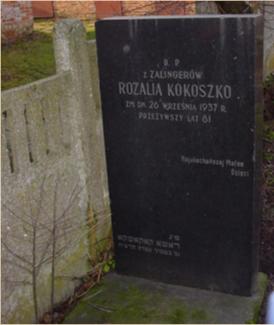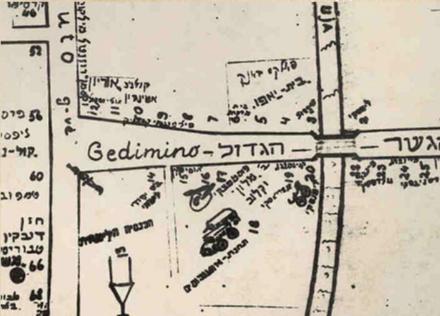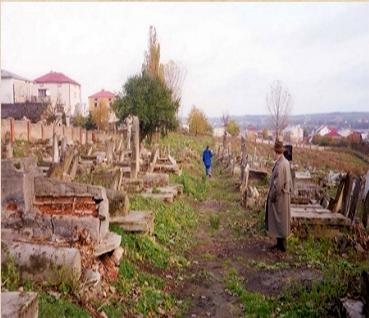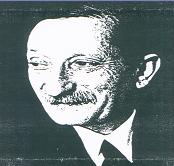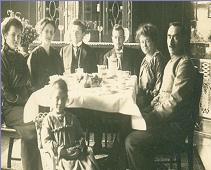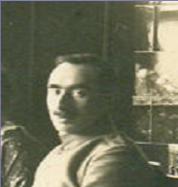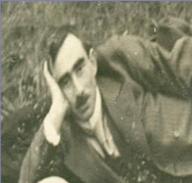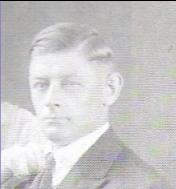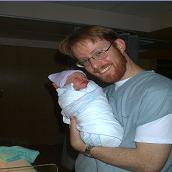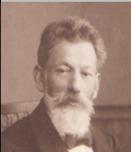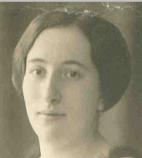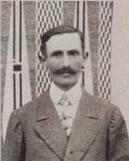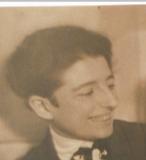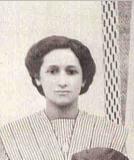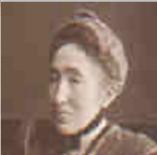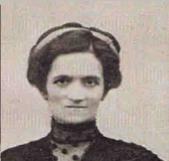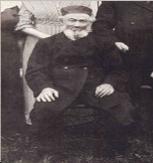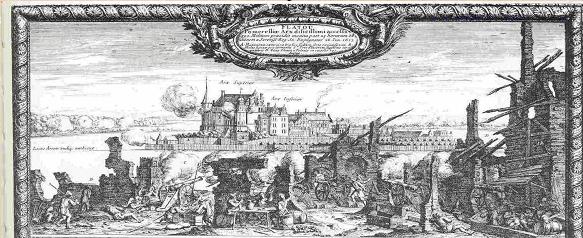Hi Ralph,
That is interesting about your family's arrival in West Prussia. Mine also arrived just after the Great Northern War which decimated the area.
I think you are correct in stating that it was the Polish nobility's desire for income that caused them to invite our ancestors. I understand that were taxes to be paid by the town dwellers like your ancestors. Farmers were a different story.
There were very few Polish farmers left. So usually the nobility made a deal with a German to set up and manage a village (the title was schultz). The schultz would recruit the farmers and see to the clearing of the land and the building of small houses. The schultz then collected a portion of the crop and used it to pay the nobility. In the case of Peter Remus of Zbosse, he had to take the wheat to Danzig, sell it, purchase salt, and provide the payment to the nobility in salt. Some of these contracts still
exist in the land records of West Prussia and it a book on the subject done in the 1920's.
These contracts usually were not inheritable so the nobility would resell right to be a schultz when the original schultz died. The farmers also had no right of inheritance. So whole villages could be repopulated with Poles or more agreeable Germans.
This land was not great land to farm. The glaciers covered this area and when the glaciers retreated much of the land was sandy. A note in the 1772 tax records tells of Schultz Remus complaining about how often he had used compost and how the land was still not bearing much grain.
Grains were initially the most important crop. Usually the peasants would eat the courser rye and the nobility would get wheat in payment of the land rent. A poor crop could lead to starvation of a whole village and the death of the weak (the old and young). About 1750 potatoes were introduced. These were more reliable sources of food and they stored well though the cold winters. Life got better. Still a man could expect to lose half his children before the children matures and he would expect to die by 35. And a man might see one or more wife die in childbirth.
Cholera and other disease epidemics were also present. They hit the towns worse but also struck the villages. In Schwente near Krojanke, there is a cemetery just for cholera victims. It is not unusual to see in church death records all-of-the-sudden many victims. Since this was before antibiotics, cuts could lead to death by bacterial infection.
The nobility also sold the right to brew beer and to have a public tavern. My ancestors at the time of the 1772 census ran a krug (tavern) at Smiardowo a few km north of Schwente. There are pictures of a krug of that era on the web site. This right was resold when the kruger died. There are existing copies of those contracts too. I am not sure who turned the potatoes into
vodka.
Incidentally the family that owned all this land including Krojanke lived at Pollnitz north of Flatow. There are pictures on the web of the now very run down vodka factory on their estate - the manor house is fully destroyed.
Following is my sense of the role of the town dwelling jewish people. The villages lacked tradesmen and merchants. They might have some farmers who could be blacksmiths but that was about it. So to get pots and pans or other needed things the farmers needed to deal with the merchants. In some cases they merchants came to the village with a wagon of goods and traded such goods for farming produce. In other cases the farmers might go to town to trade.
In Flatow just north of Krojanke the jews lived in the central business district. Their homes were also their shops (they lived upstairs). The synagogue was nearby. It did not appear to be a ghetto area in the sense of a sealed off area - just the trade center where several important roads came together. The Lutheran and Catholic churches were one or two blocks away.
(This is partially viewing the area and also see old maps at the museum there. The area was partially destroyed in WWII.) I think I recall that there were 200 jews in a mixed population town.
So I think the merchants did business with not only the nobility but other town dwellers and the farmers. Still a goldsmith must have had a pretty limited market.
I think life was hard for all. It was not rich farming country nor full of natural resources. (It is now a tourist area with little lakes to row boats and swim). Life was short and the loss of children and spouses must have been very painful. The food was simple. As the nobility owned both town and country, ones economic future was uncertain. On the other hand, the villages and towns had closely clustered houses. So you knew all the local people and had a sense of community and shared hardship. And most were related by birth
or marriage.
Wishing you well
Bill Remus
Dear William,
Thank you very much for your most interesting letter - please don't worry about the reply as these things have a time zone of their own ! there seem to be so
many mysteries buried in the past !
The only reference I have about the profession of my oldest ancestor
appears in the Prussian census of 1774 - where Zelig Salomon of Krojanke is listed as a gold and
silversmith ! I am not sure if this was really his profession as I doubt the economy of these villages could have supported him.
My desire for knowledge of the social conditions in these villages [particularly of Krojanke and Flatow
were one of the reasons that I wrote to you and I would be most
interested if you tell me what you know of how our ancestors lived there particularly in the later part of the
C17th and C18th ! By the late C18th many of my ancestors had already left the Netze Valley and moved east to New East Prussia.
Anyway I was hoping a careful translation would link that gold wire to goldsmiths like your ancesters in Krojanke. And in that way provide a rationale for the Remus family of Danzig to move near Flatow and Krojanke in the late 1600's.
Might I ask how your goldsmith ancestors business worked? Did they
Recycle old gold like mine? Work from imported gold? I gather the only ones that could buy a lot of gold jewelry were the Polish nobility but there were only several such rich families nearby. So were your ancesters taking the gold objects to markets far away? (Sorry - these maybe beyond your knowledge
But I wanted to ask just in case you knew)
As I said I know almost nothing of Zelig Salomon and his profession - I assumed perhaps incorrectly that these villages could not have supported a goldsmith - but perhaps I am wrong ! I can only suggest that from my readings the following thesis !
Although this area had been devastated during the Swedish Wars - the
Polish nobility had a strong desire to improve their economic situation and live a life style compared to the nobility in Western Europe ! I believe they may conditions as attractive as possible to
attract but Jewish, Mennonite and German settlers to this area. I have a document from 1710 listing the conditions that Jews could live in Krojanke. This document shows that the local Polish noble was willing to go to great lengths to attract Jews to live in
Krojanke. I presume that similar conditions were offered to other non Polish groups. The desire of the Polish nobility to live a life style similar to the Western counterparts must have also
meant that they would encourage skills like those of our ancestors - why import these > goods when you could have them made locally ???????
Dear ralph
Thank you for all of the list of Jewish citizens of Krojanke and of the contract with the Polish nobilty (the same gang my ancestor's had
contracts with). I will reply briefly now and in more detail later.
Regards Bill
There were very few Polish farmers left.
Was this a result of the devastation's of the Swedish wars ?
Yes. It wasn't really the killing by the Swedish soldiers but that
they would arrive at a village and take all the food. Then the villagers would die of starvation the following winter unless it was the start of the growing season. Also the soldiers spread diseases like Cholera and Typhus.
It must have been a very insecure time - as you say " both the contract to be schultz and the farmers also had no rights of inheritance ! I agree with what you said that often a life
span could be no more than 35 years so that we would mean an even greater turn over in population !
Yes, a big turnover in farmers. The first generation of my family was
in Schlochau and then moved to Schwente (and nearby villages),
next generation near Zempelburg, the following generation near
Tuchel and the following generation went to the Ukraine (Volhynia)..
Often the elder and first son would continue on in the original village while the other sons would have to move on. A farm could not
support multiple families. Upon the elder's death, the first born
would move have to move.
Regards Bill
Thank you for your understandings ! I wanted to add to this what I know of the Jewish populations of these two towns/villages
THE JEW PRIVILEGES OF THE CITIES FLATOW AND KROJANKE
Privilege for the Jewish Community of Krojanke of July 1712
Jacob of Koscieler and Dzialyn = Dzialynski, the Lord and heir of Pakosch and Krojanke, > Woide of Kalisch.
I hereby make it known through this document to everybody, particularly those who are involved,, that I have given permission for Jews in my city of Krojanke in the Woiwodeship of Kalisch , in the "Bezirk" Nakel in der Kraina to buy as much land as needed for building their houses, but no Jew may build nor live on the streets at the market place except for those who are already their houses
in the market place and live there;
Tobias Kal???? Kuerschner Mendel Jacob Nassen and Samuel Wolff. These houses are theirs for all times.
They rest may only buy and build in the back streets. In addition I have given them the right, which I am confirming here for their oldtestmental service school [synagogue] as large as needed and they may close a convient location in Krojanke.
In case this "school" -God Forbid - should be destroyed by fire or enemies, they are allowed to rebuild it. In addition , they build a hospital for the sick and poor Jews of both sexes, also a house for the rabbi and another one for the kantor, a third one for
the teacher and a school so that the Jewish children can be taught according to their confession also a bath house for Jewish women at their own expenses.
All these specified buildings as well as their location where they stand, and the people who live there shall be free from public and castle taxes. But on every Martinstag [Nov > 1st shall the Jews for all the other buildings pay me or my successors 200 Tymf/
They are freed from all services to the Lord of the Castle. They are permitted to find a proper location for the internment of their fellow believers. For the fence they may at their own expense transport lumber from the nearest woods. Their cemetery with the
building that belongs to it [of the gravedigger] shall be freed from all duties and taxes. They are allowed to carry their dead there when and where they wish on weekdays as well as holidays. Such burials shall take place undisturbed, without any interference.
but should they be disturbed the present of future "Statthalter" who lives in the castle shall severely punish the disturber.
On Easter - by order of the castle - the citizens shall stand guard so the Jews will be quiet during the procession. But if a Jew shall cause trouble, he shall be arrested and brought to the castle and the Sttthalter shall punish him according to his offense. "
In regard to the legal system the Jews are under the jurisdiction of the castle and citizens shall not get involved with Jews in civil or criminal disputes. But when a Catholic or anyone else has demands against a Jew, he shall at first establish claims before the
Council of Jewish Elders, and if he does like like their decision an appeal to the Statthalter at the castle and from there the case may be brought before the Lord of the Castle.
In the case that a Jew serves a prison term he shall be brought to the Jewish prison for the full term. Whenever the bathhouse for the Christian citizens in the community of Krojanke should be restored, admission for the Jews of both sexes should not be denied.
In order to provide a livelihood the Jews of Krojanke are permitted to brew beer, distill brandy and sell both, for which the Christian citizens shall pay a tax to the castle. The citizens shall not interfere with the buying of grain and malt on the part of the
Jews, but the Jews may not sell them to the citizens.
The Jews may trade like the citizens and engage in all crafts [ carpenters, painters, plumbing etc] all products available may be sold whole, by piece or lot also vardgoods as well as locally manufactured men's and women's garments, also salt [barrel or quart] iron or plows.
They also may butcher and sell the meat on the street where they houses are and in the butcher stalls.
On the whole Jews and Christians shall not interfere with each other. If inspite of this a Jew should do it , he shall be ??????????? by the castle.
The Jews shall also be be permitted to bake and sell rye and wheat bread. In addition to the above mentioned taxes, the Jews have to deliver annually on Martins Day ten quarters of lambs feet.
They also may keep horses and cows for their convenience. They are excused from castle guard duty but not from city guard duty except the three elders, the rabbi , the kantor and the teacher.
In drawing this privilege I am following the regulations which my predecessor has established, and I have them copied unchanged.
For additional impact and credibility I have personally signed this document and attached my seal.
In addition after each Easter holiday the Jews shall deliver to the Lord of the Castle two quarters of good prime beef, that is of a good steer.
Detailed breakdown of Jews and their occupations in Krojanke in 1772-74 Is included in the enclosed Excel file
Krojanke
"In 1772 there are 35 Jew's houses, including the house of the rabbi and the school master. Besides this there are 2 surgeons, 5 chief and subordinate rabbis, 1 slaughter, 2 servants, 4 grave diggers, 2 school, 2 hospital attendants and 2 midwives. There are 55 families: however many among them are poor and here today and gone tomorrow. Their annual monetary submissions to the crown amount to 508 Florins head tax and 50 florins minor head tax and 100 Reich thaler property rent and 2 stones [approx. 40 ilbs] of tallow tax
to the gentry. With their trade it is as in all other places in that they deal in anything they want, to which they are entitled by their Privilege. In return for earning
their livelihood in the same manner as citizens, they contribute one tenth in the event of extraordinary expenditures of the city"
From Excerpts of the records of the War and Crown Agent, Ladewig, concerning his Circuit
of the cities of the Netze district between 9th of September 1772 and the 6th of January 1773
I hope this may add a little to your broad picture of our ancestors lives !
Looking forward so much to your reply
With kindest regards
Ralph
Your attachment explained well how the Jewish community governed itself. Here is a bit about the German community.
In the 1700's, the right to establish and run a village was sold (Schultz privileg). In Martin Remus' case, the price was 2050 tymp in 1751 to be schultz for the Polish residents of the village of Schwente near Krojanke.
The right also gave the schultz the responsibly to define any rules for the village. Should any villager not follow the rules, the schultz was act as judge and jury, and see to the punishment of the villager. Except the villagers life could not be taken without the Polish nobility's permission.
In reality, I think these powers were not as bad as written in the contract since the village was a small community and social pressure kept people from behaving badly. Never-the-less, it was a potentially oppressive system.
Some villages were Hollandry and others had dorf privileg. The first case was for villages that were established very early in the history of West Prussia near rivers. The village was established largely for the villagers to control the river and farm the wet lands. These were originally Dutch people hence the name Hollandry.
Later the Polish nobels sold the right to self governance to the villagers.
So the Krojanke system seemed more progressive than the typical 1700's village.
After 1772, the Prussians put a lot of pressure on the nobility to sell off these villages so that over time the villages became self governing.
Regards Bill
A while ago I was reading about the war and I recall the following (but could have faulty memories too)...
This war was particular bad as it differed from prior wars. Prior wars, the kings would get the nobles to raise an army (some nobles but mostly peasants), there would be a fight and some deaths, and everyone would go home. However, here the Swedish king landed a standing army of Scandinavians and mercenaries (including Scots and Germans).
The only way to handle logistics like food and fire was to keep moving and as you went take the necessary food from the villagers. So this lead to fights but more importantly there peasants lost there food stores - and thus starvation for the largely Polish peasants living there (especially of crops were destroyed in the process).
Regards Bill
Dear Bill,
I gather from this letter and the previous letters that life in C18th
Poland was a very precarious existence -
a poor harvest - could mean death for a village - am I right ? was there no means of > storing surplus produce > or was there no surplus produce ?
Ralph
Dear Ralph
Prior to about 1730 when the potato was introduced, the most reliable storage was of grain. Particularly rye and wheat ground to flour. The veg would spoil and the meat unless salted would also spoil. Salt was hard to get and expensive in that time. Kolberg had salt mines that provided salt to the area if you had money like the nobles.
After 1730, the Polish King introduced the potato which when kept cool in a cellar would last the winter. That was as great of boon to the people of our Kries as it was to the overpopulated Ireland. The King required potatoes to be grown by law as well as traveling around handing them out to be grown. Quite amazing for the time.
But if the crops failed due to the weather, starvation in town and village could result. It was not so if you had money and could buy food brought in from other regions.
I was just listening to a course on tape about the 13th century. It talked about the children's stories called Hansel and Gretel and Little Red Riding Hood (do you know these?). The Brothers Grimm sanitized these from folk tales from long ago.
On St Martins day, the peasant farmers burned the stubbled on the fields (a way of fertilizing the field) and examined their inventory of food. If there was not enough fodder for all the livestock, some livestock would be slaughtered to bring the food and animals into balance. Also the food for people would be considered. If all would die with so little food, it was not uncommon to take the very young and old to the forest and leave them to the will of god. This is why the Hansel and Gretel story has the children wandering in the forest so the lecture said. And this is why Little Red Riding Hood is taking food to her starving grandmother in the forest - and the wolf has eaten grandmother.
I don't know how starvation was handled in a town like Krojanke in the 1700's but it must have been a grim story too.
Regards bill
Dear Bill,
You mention 2050 tymp - what is this currency ? what was the currency that was introduced in 1772 ?
Dear Ralph
yes, it was currency before the partition of Poland in 1772. I think you will see it in your contract between the Nobles and people of Krojanke as I see it in the schultz privilege contracts. After 1772, the currency was the Prussian - thalers?
Prior to 1772 there was definitely a need for money changers as there was German currencies from various independent states especially Prussia, currency from Poland, and currency from Danzig. With respect to the villagers, I think barter played an important part of the transactions.
(I dont know how to relate tymp to currency today.)
{Ralph}
I understand that Polish was the common language - but I assume your
ancestors spoke German and the Hollanders spoke Dutch ! I assume that as my ancestors engaged in trade that that must have known all these languages as well as Yiddish !
{Bill}
The villages and smaller towns tended to be of a single language group and a single religious group. So German Catholics and German Lutherans generally occupied separate villages. And German Catholics and Polish Catholics were often in separate villages.
My ancestral village of Schwente near Krojanke was rather rare in having both lots of Poles and lots of Germans and a village head for each. My ancestor Martin Remus was village head for the Poles so must have spoken both German and Polish. The head for the Germans was Daniel Wanski - a Polish name - who must have spoken German and must have been a Germanized Pole. Martin's son Lorenz and Daniel's daughter married.
Many of the nobles were Polish but also spoke German. Many of the Germans were Polonized and spoke Polish too. And I expect the merchants of Krojanke would speak Yiddish, German, and Polish as you suggested.
Generally the Poles were serfs until the 1800's so the merchants might have less use for Polish than for German since the likely customers were German or German speaking nobels. After 1772, German became the official language so became the lingua franca. At that time the ethnic and religious barriers between Germans and Poles began to break down and intermarriage and hence
mixed villages occurred more frequently. Although my family name Remus is
German (more correctly Latinized German Rehm+us=Remus), my great grandmother was a Polish Catholic. They were married well before moving to Canada. There were Polish women mixed in my family at various times. Also there are people in Poland with the name Remus to whom I am related but who became thoroughly Polish and Catholic even given a German Lutheran ancestor.
